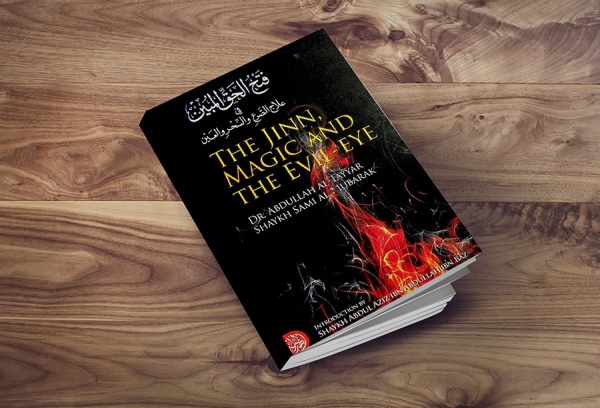
Dr. Khalid Aljuraisy
Language: English | Format: PDF | Pages: 292 | Size: 24 MB
Praise be to Allah, the Kind the Ever Caring (1), the Able, the Merciful, the Owner of the dominion. It is who answers the prayers of those in urgent need, who heals His slaves whom He tries with illness.
Praise is due to Him for His great blessings and generosity.
We testify that there is no God but Allah, alone without partners, and we testify that Muhammad is His slave and messenger, whom He has sent as a mercy to all mankind.
May Allah’s peace and blessings be upon Prophet Muhammad, his kin, his sahaabah (companions) and he dedicated followers.
Regrettably, some Muslims have neglected ruqyas. Others may have never thought about them at all. They may even see them as nonsense (2). However, the faithful believe that ruqyas are a worthy means of immense benefit for healing all physical and non-physical illnesses. Shari’ah statements confirm the permissibility of seeking healing by Qur’anic recitations and the Prophet’s established prayers. For example, Allah says, “…Say: It [the Qur’an) is for those who believe [in it] guidance and a healing.” [41/44] Also, according to the Hadith, “When Allah’s Messenger became ill, Gibreel (Angel Gabriel) would do (this) ruqya unto him: In the name of Allah, may He grant you healing. May He cure you of all illnesses, of the evil of whoever envies you, and of evil eyes.”(3)
Evidently, the ruqya literature has wide range of ruqyas. Basically, if a ruqya is permissible and it established to be beneficial, it is used. For example, some rqaais (performers of ruqya) use short surahs (Qur’anic chapters), such as Surat Al-Faatihah. Others may use a long one, such as Surat Al-Baqarah. Also, a selection of surahs can be used, e.g. Al-Faathiah plus Al-Falaq and An-Naas. Some may even use only one Ayah, e.g. Ayat Al-Kursi. Sometimes, water, oil or honey is used. The raaqi recites the ruqya unto clean water to be drunk by the patient, unto oil to be rubbed onto the body, or unto honey to be eaten.
In all the above-mentioned examples, the raaqi uses a permissible ruqya which he believes to be beneficial; and suitable for a Particular patient. This is based on the Prophet’s saying, “Let me see your ruqyas. Ruqyas are valid provided that they are void of shirk.”(4) The Prophet also says. “I see no harm (in ruqyas). Let whoever can benefit his fellow Muslim do so.”(5)
Evidently, some imams among the salaf (early righteous Muslims) used for ruqya Ayahs that had not been designated for ruqya earlier. For example, as mentioned by Ibn-Alqayyim in Attib Annabawi (Prophetic Medicine), for women having difficult labour, Imam Ahmad used to write as ruqya on white paper or something clean the following supplications, from the Hadith and the Qur’an:
– “There is no God but Allah, the Almighty, the Forbearing. Blessed be Allah, the Lord of the Glorious Throne. Praise be to Allah, Lord of the worlds.” (6)
– “On the day when they see that which they are promised (it will seem to them) as though they had tarried but an hour of daylight. A clear message. Shall any be destroyed save evil living folk?” [69/35]
– On the day when they behold it, it will be as if they had but tarried for an evening or the morn thereof.” [79/46]
According to Ibn-Alqayyim, some the salaf (early Muslims) – Ibn-Taymiyyah among them – mentioned that Imam Ahmad had written that ruqya for several cases of difficult delivery.
It would be impracticable to detail salaf statements with respect to the ruqyas they based on ijtihad. Therefore, not only have I selected the Ayahs specified by evidence as ruqya, but have also included other prayers believed to be beneficial for the treatment of sihr (witchcraft), possession, the evil eye and other illnesses, physical as well as non-physical. Continue reading →

